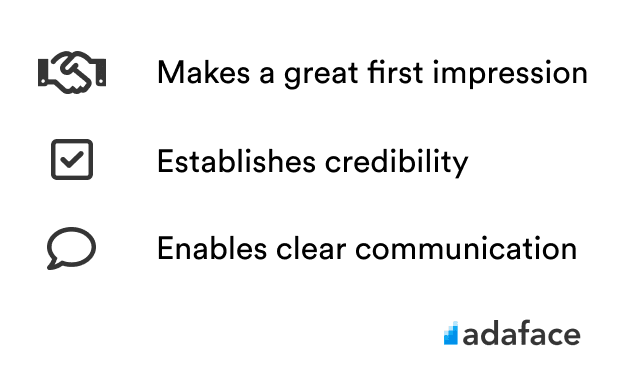
"If you think a semicolon is a regular colon with an identity crisis, I will not hire you."
This is what Kyle Weins, CEO of iFixit has to say in his post; I Won’t Hire People Who Use Poor Grammar. Here’s Why. And it's not just him who feels that writing skills are essential in the workplace.
"73% of employers want candidates with this skill."
Writing is not restricted to the J.K. Rowlings or Dan Browns of the world. They are a great skill set to have, irrespective of what the job is. In fact, being a good writer can largely benefit both the employer and the employee.
Importance of Writing Skills in the Workplace
Did you know that a missing comma cost a Maine dairy company 5 million dollars? Well, truth be told, this is probably a one-off scenario that might not occur again. Even if it does, you may believe that, aside from editing and journaling, other jobs do not necessarily require writing skills. I am here to convince you otherwise.

1. Establishes credibility
When a memo or email has zero grammatical errors or typos and is clear and concise in its message, it shows competency in work. Whether you are talking to your customers or potential clients, well-written documents show that your work is credible and can be relied upon.
On the other hand, sending out emails or memos riddled with errors and typos will imply that not a lot of work went into drafting the message. If you are not willing to put some time into drafting the letter, why should the receiver spend time reading it?
2. Makes a great first impression
In this day and age of remote work and technology innovation, how often do you hear people running into clients or potential employees face-to-face? The first thing your clients see is probably your website; the first thing hiring managers see when they come across potential employees is their cover letter or LinkedIn profile.
Imagine a well-written email to your clients or a clear and concise cover letter from your candidates. They make a great first impression on whoever receives them. You only get one chance at making this impression, so why lose out on that by having lousy writing skills?
3. Enables clear communication
Have you received emails from your manager or anyone at your office, and you are unclear on what it means, so you go back and forth with them just to understand what the meaning of the email is? This is an example of an office with inefficient communication.
Writing skills not only improve communication, but they also increase the clarity of your communication in your workplace. Whether it's communicating between internal stakeholders or with clients, clear and brief writing is the core value for building business relationships.
Testing for Writing Skills in the Workplace
Writing skills are essential. However, as hiring managers, you do not need to go out of your way to ensure that you have a great writer for every role, especially if you are hiring for positions that involve a lot of technical expertise.
By conducting a bit of due diligence, you can ensure that your next hire has clear communication and good writing skills that are sufficient to impact your workforce positively.
1. Cover Letter
How your candidates' cover letter is drafted says a lot about their writing and credibility. We know that the cover letter is the first part of the application that the hiring managers read. Keeping this in mind, if the cover letter is filled with grammatical errors and typos, you already know that very little effort has gone into drafting it.
A candidate is well aware that a cover letter, whether in the form of a resume or a LinkedIn profile summary, is the first thing the employer sees when evaluating the candidate. Based on how this is drafted, you can understand their writing skills and how credible the other aspects of their resume/profile are.
2. Portfolio Work
These days most people have their portfolio built and placed on the net. You can go through that and analyze how the writing of the individual you are hiring is. A portfolio of writing work, whether it is research summaries, blog posts, or personal journaling they do in their free time as a hobby, can all be examples of their work that can show you their writing skills.
3. Pre-employment Tests
Pre-employment tests can be a great way to test the writing skills of your candidates. The tests can be optimized based on the extent to which writing skills are required for the job. For example, your candidate spends significant time writing and editing content in content writing and journaling jobs. Thus, you must test their writing skills to a larger effect when it comes to these jobs.
Tests can be curated depending on what you're optimizing for:
- Error Checking Test - To evaluate a candidate's ability to focus and spot errors
- Attention to Detail Test - To put skills like proofreading to the test
- Copywriting Test - To test a candidate's vocabulary, grammar and attention to detail
4. Writing Samples
Writing samples are a great example of what writing skills your candidate currently has.
You can get them to submit writing samples right in the application. Suppose you are hiring for a role in marketing; apart from the aptitude and other pre-employment tests that you provide, you can also ask them to submit some writing samples during the interview/hiring process.
When I say writing samples, it does not have to be a complete assignment where the candidate has to write a full 500-word essay. It can be as simple as including questions such as "Where do you see yourself in 5 years?" or "Why do you want to join our company?" in an application form that the candidate must submit. By getting answers to these questions, you not only get to know the candidate who wants to join your organization but also have a chance to evaluate their writing skills.
On a Final Note
Writing skills are critically undervalued in today's job scenario. The internet has drastically reduced the chances of having first impressions face-to-face. Clients make an impression on you by visiting your website or LinkedIn page; people come across your employees by visiting their LinkedIn profiles.
If you want to make a great impression on your organization, make sure to not only hire candidates with good writing skills but also train your existing employees to improve their writing abilities.

Pragnesh is the EiR at Adaface. He loves reading books more than scrolling through social media, which is a big deal if you ask him.
Spending too much time screening candidates?
We make it easy for you to find the best candidates in your pipeline-
with a 40 min skills test.


